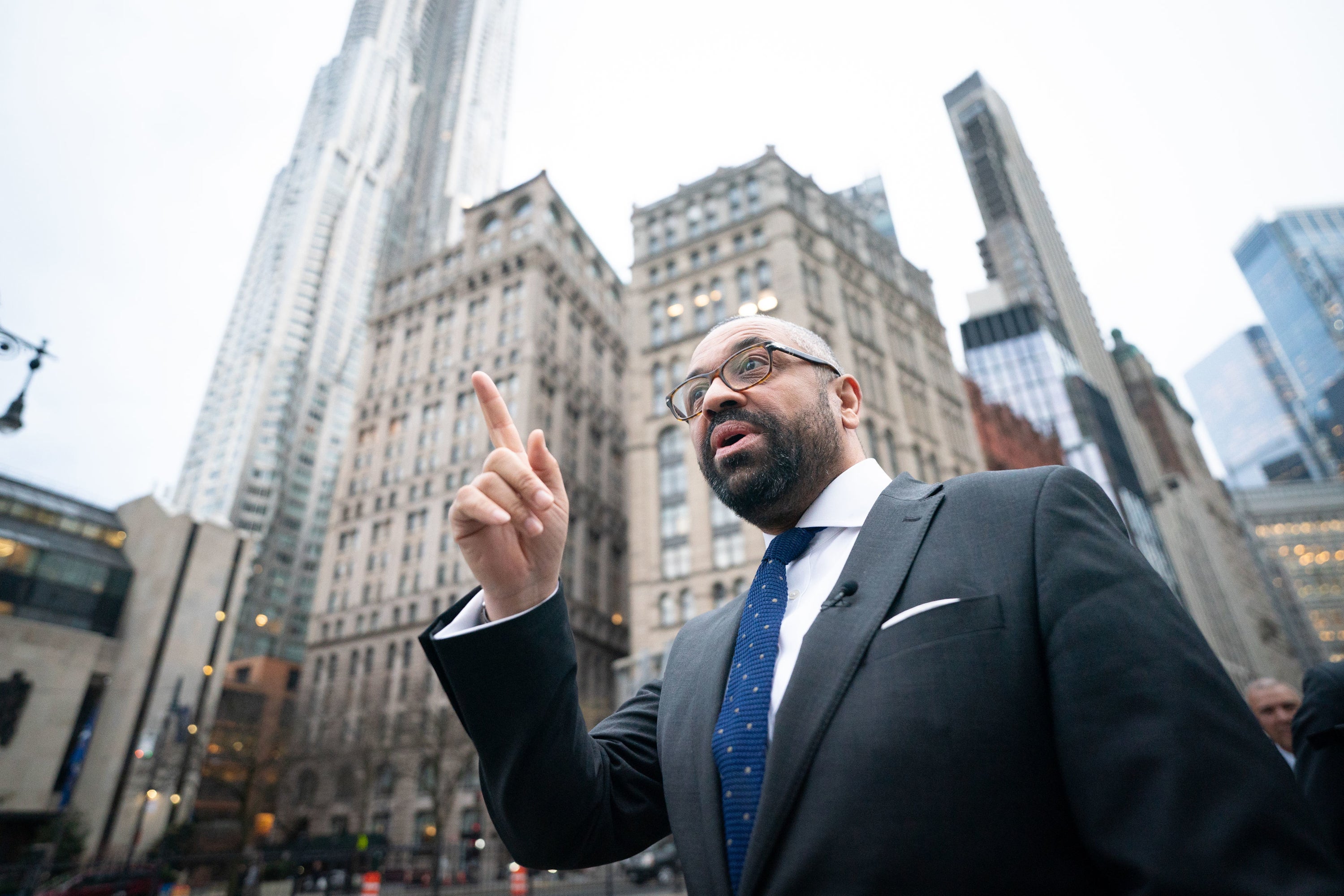How James Cleverly’s point-scoring on the pro-Palestine protesters could backfire
The home secretary’s suggestion that marchers for Gaza should stay at home is a cynical attempt to throw a bone to his party’s right-wingers – and a grenade against a Labour Party divided over the conflict. But it won’t work, writes Andrew Grice


James Cleverly says today that pro-Palestinian protestors have “made their point” and should stop their fortnightly rallies in central London calling for a ceasefire in the Israel-Hamas war. “They’ve made it loudly and they’re not adding to it by repeating themselves,” the home secretary told The Times.
But he is wrong. If people don’t have a moral right to protest after an estimated 30,000 deaths in Gaza, then when? The mass protests would surely end if the war stopped, and the number of arrests is relatively small given the huge numbers that turn out.
True, there are legitimate concerns about people feeling safe on the streets and the policing costs – £25m so far, which is putting pressure on police budgets, notably in London. Cleverly is right to consider forcing the organisers to give at least six days’ notice of a demonstration to give the police more time to prepare.
But the Conservatives have another, unstated motive here. They are again trying to put Labour on the back foot and punch the bruise caused by the party’s split over the war. The Tories never learn. The same sentiment about the pro-Palestinian protests led Lee Anderson to make his Islamophobic attack on Sadiq Khan, the mayor of London.
Speculation at Westminster is rising after it emerged that Anderson met Reform’s leader Richard Tice on Sunday
Rishi Sunak’s weak response even allowed Keir Starmer to go on the offensive; although he removed the Tory whip from Anderson, he refused to say his words were Islamophobic.
Cleverly’s intervention is no doubt partly designed to provoke a hostile response from Labour. While failing to satisfy the noisy Tory right-wingers who want him to ban the marches, his remarks are a nod to those on the right who want to extend their culture war into a “who governs?” election.
In his original GB News interview which sparked the Tories’ damaging row with themselves, the former miner Anderson contrasted the policing of today’s protests to that of the miners’ strike in the 1980s. Without being as “brutal” as they were then, he said the police needed to take a “different direction”. He should make his mind up: if it is up to the police, why attack Khan over the protests? Rightly, neither the London mayor, as police and crime commissioner, nor the home secretary are responsible for police operational matters.
Today’s enemies for right-wingers include “foreign courts” like the European Court of Human Rights (a label used by Sunak himself) which have stopped the UK from “taking back control” of its borders and Islamists who have “taken control” of the streets. Yet, the Tories would be wise to remember that when the Tory prime minister Edward Heath called a “who governs?” election amid strikes in February 1974, the voters replied: “not you”, and a minority Labour government came to power.
Sunak is trying to ride two horses – fighting the election mainly on the economy while tossing a few bones to perpetually ravenous Tory right-wingers to try to keep them on board. Inevitably, it doesn’t stop them snapping at his heels. Instead of facing down these MPs when he became prime minister, he hoped that making Suella Braverman home secretary and Anderson deputy Tory chair would protect his right flank from Reform UK and stick together the fraying electoral coalition the Tories achieved in 2019.
It hasn’t worked: Braverman was inevitably sacked (partly for putting undue pressure on the Metropolitan Police over the Gaza protests) and, ironically, Anderson might now join Reform. Speculation at Westminster is rising after it emerged that he met Reform’s leader Richard Tice on Sunday.
Ministers, fearing a further haemorrhage of votes to Reform in the red wall, now plead with Anderson in media interviews to apologise so they can restore the Tory whip, but he is having none of it. (I suspect that before the controversy erupted, Sunak intended to bring back Anderson to his former Tory post in good time for the election).
Sunak should have copied what Starmer did on antisemitism by declaring war on his extremists within – even if it risked party disunity.
Yes, this is easier to do in opposition than government when you have a chance, in theory at least, of retaining power. Nonetheless, Sunak should, for example, have condemned a discredited Liz Truss at the start of his premiership but he didn’t. He has another chance now after her bizarre appearance in the US in which she refused to challenge Steve Bannon’s description of Tommy Robinson as a “hero”.
But Sunak won’t take it. So again, he ends up pleasing no one – neither his right-wing critics who compete to look the toughest ahead of the post-election battle for the party’s soul, nor the voters alienated by the Tories’ continuing lurch to the populist right.






Join our commenting forum
Join thought-provoking conversations, follow other Independent readers and see their replies
28Comments